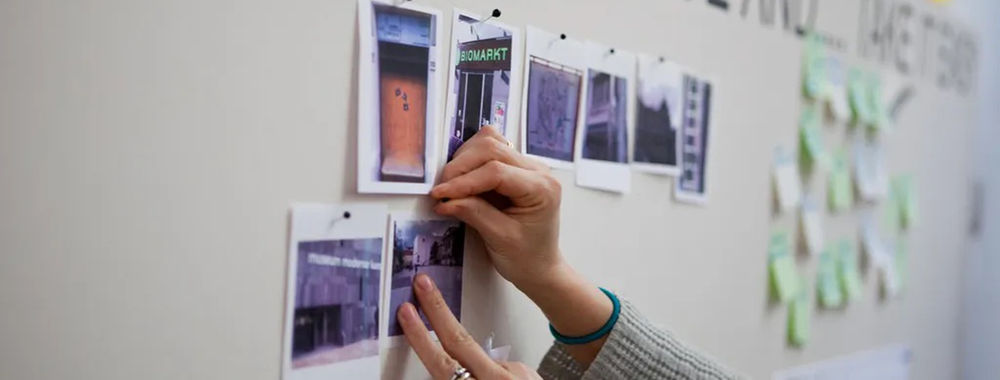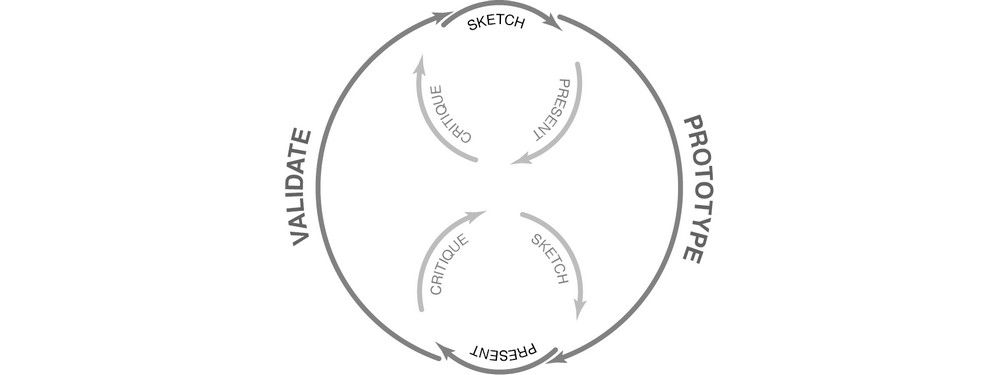Not everything in life is within our control. Believing that it is can be a serious handicap to getting things done in design work and most of life. Learning how to handle the illusion of control will make it much easier to accept things that aren’t within your control and focus your efforts on areas which do lay within your control.

Author/Copyright holder: 周小逸 Ian. Copyright terms and licence: CC BY 2.0
The ideal situations in life have us in total control of the outcome. They allow us to shine and demonstrate our hard work and our strengths. Unfortunately, these situations are rarer than they might first appear.
Our user research requires the input of users. Product development takes a team of people. Even in the simplest interpersonal relationships – it takes two to tango. Situations where we have total control of the outcome aren’t all that common.
The Illusion of Control
The illusion of control is a cognitive bias which leads us to assume that we have complete control over the outcome of a situation in an instance where we do not.

Author/Copyright holder: Aftab Uzzaman. Copyright terms and licence: CC BY-NC 2.
One of the most common expressions of this is in relationships with other people. You might, for example, fall out with a colleague or a superior despite the fact that you treat them with respect and kindness. It’s easy to blame this kind of situation on ourselves but in reality – the other person has a say in the way that the relationship is expressed. They may not know that they are giving off a hostile vibe. Or, they may know it very well; personality clashes aren’t entirely uncommon.
You do not have complete control in this situation. Though you do have control over how you relate to the other person and how you respond to them – they remain in control of how they treat you.
The Illusion of Control was formally identified by Ellen Langer in 1975 in her paper “The Illusion of Control” which was published in The Journal of Personality and Social Psychology.
How Do You Handle the Illusion of Control?
It begins by examining the situation itself. What do you have control over? Honestly? What is it that lies outside of your control? Are there ways to influence the areas over which you lack control?
For example, with a strained relationship with a colleague; you might be able to ask them (without pointing fingers) what the issue is and how you might resolve it. It’s possible that you hurt their feelings in the past without realizing it. It’s also possible that there’s nothing that you can do.
Once you’ve taken all the actions that are possible within your sphere of influence and control – you need to learn to acknowledge and accept the things over which you have no control.

Author/Copyright holder: Photographer. Copyright terms and licence: CC BY-NC 2.0
The biggest problem with the illusion of control is that it leads to frustration and sometimes even to anger. We blame ourselves for outcomes that aren’t our fault. This is particularly true when the stakes are high – so a UX designer may blame themselves for a product that doesn’t become a market leader where the truth is that no matter how well researched and how well designed; some products fail.
If you are putting in as much effort as you can and are taking all the steps within your control to try and influence a positive outcome – you have done as much as you can. By understanding this and accepting it, you can reduce your own feelings of frustration and stress. Even world leaders have their off days – Apple may be responsible for the iPhone but it was also responsible for the Apple Lisa (never heard of it? It’s because it disappeared nearly as fast as it arrived on the market).
If you find it difficult to handle any cognitive bias by yourself – it can help to access the skills of a coach to work with you on your issues. There’s no shame in this and a coach can help guide you through asking the right questions and exploring the answers in a positive and healthy manner.
The Take Away
The illusion of control is simply frustrating. It leads to us accepting “blame” where no such thing exists. Learning to break down the reality and understand that in most situations – there is no blame to be had and that others have control over the outcomes - can make it easier to deal with. The more of a perfectionist you are, the more likely you suffer from the illusion of control.
References
Take a few minutes to make yourself familiar with Apple’s worst design moments. The company that is famous for control isn’t always a success.
For a calming look at the illusion of control take a peek at this piece from Zen Habits.
To see how the illusion of control might affect other areas of your life check this out.
Ellen Langer’s original paper on the Illusion of Control can be found here: Langer, Ellen J. (1975), "The Illusion of Control", Journal of Personality and Social Psychology 32 (2): 311–328
Hero Image: Author/Copyright holder: Remo-. Copyright terms and licence: CC BY-NC 2.0











